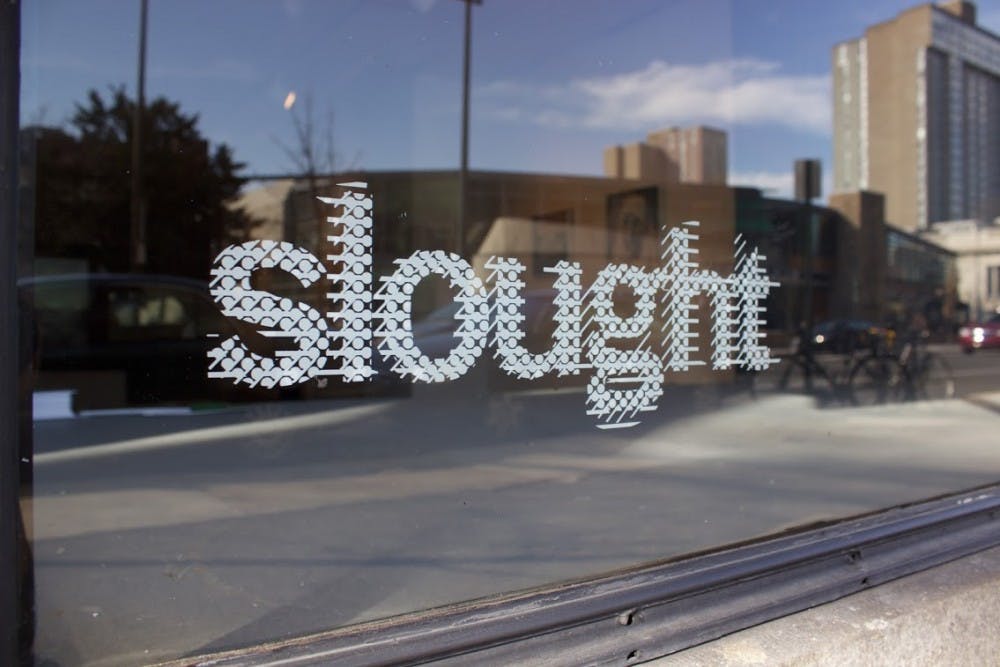If you don’t know what the space just two doors down from Metropolitan Bakery with the words “Slought” overhead is—well, it's a non–profit organization named Slought. Shocker. From the outside it seems simple, but you'll find when you enter and engage with what lays inside, you'll come out with an elevated sense of what's around you.
Slought’s mission statement is simple at first glance: It encourages dialogue and relationships through social and cultural programs. Slought has been host to extensive exhibitions, such as the most recent one on Devin Allen, a photographer and activist involved with the Baltimore uprisings. Each exhibition challenges us to think and question the world around us. In addition, Slought also hosts countless events, giving visitors the opportunity to really discuss the issues surrounding the exhibits. One of these events during the Devin Allen exhibition included speeches and a conversation between multiple activists in Philly and Baltimore. Plus, Slought runs an auxiliary program called “mixplace studio,” which teams with West Philly students to propose an urban education model that bridges the conversation gap between the community and the state.
Slought is many things. An exhibition space, a museum, a gallery, an event space and a platform for discussion. To a student in West Philly, the space could be a classroom, a resource. The organization is supposed to be malleable, so that a visitor can find from it what he or she needs to within its doors. The purpose of Slought is to be an open space for visitors to learn and engage with the world in the most effective way possible.
So, the question is, why should this organization matter to you?
As students, we are constantly taught. Education is structured so that we learn everyone else’s opinions, and then (hopefully) develop our own. We are taught both content and strategy towards understanding content. One thing we do not learn, however, is how to be socially critical. We are never taught to question what we are taught. We are the architects of the future of current social and cultural structures. As young people, we have partaken in multiple nationwide forms of protest, yet we still face problems of adapting to the social structures the generation before us has laid out. We constantly feed into social structures around us and rarely question the ones that are truly ingrained in our culture, like gender, class inequality and police brutality.
At Slought, every aspect of the organization asks us those essential, critical questions. The space, whose storefront is incognito and minimal, asks us if an organization is required to advertise itself to the public. The name Slought, which has no real meaning in the English language, asks us how important a name is for an organization. These questions challenge us to critique our surroundings. This is just the space. Each individual exhibition has important messages that force us to question everything we assume is a universal truth. Discussion always opens the door to change. These discussions are happening at Slought. We truly encourage you to visit the space. Check out a list of programs and join the email list to receive information on future events. Plus, it's just way too close not to check out.

